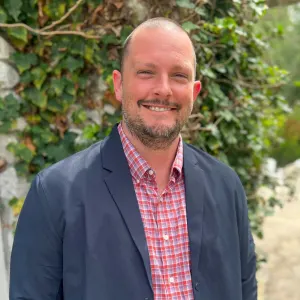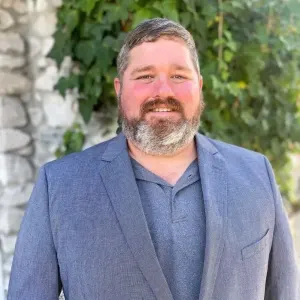








Stonewater Adolescent Recovery Center
Verified Center
This provider's information has been quality-checked by Recovery.com's Research Team for accuracy and completeness, including center verification through appropriate third-party organizations.
Treatment Focus
This center treats substance use disorders and co-occurring mental health conditions. Your treatment plan addresses each condition at once with personalized, compassionate care for comprehensive healing.
Primary Level of Care
Offering intensive care with 24/7 monitoring, residential treatment is typically 30 days and can cover multiple levels of care. Length can range from 14 to 90 days typically.
Treatment Focus
This center treats substance use disorders and co-occurring mental health conditions. Your treatment plan addresses each condition at once with personalized, compassionate care for comprehensive healing.
Primary Level of Care
Offering intensive care with 24/7 monitoring, residential treatment is typically 30 days and can cover multiple levels of care. Length can range from 14 to 90 days typically.
Provider's Policy
Stonewater works with most PPO insurance plans and some of which can cover up to 100% of treatment after deductibles. Their insurance experts provide a free, confidential benefit verification so you have a clear picture of what the costs of treatment would be at our facility and how to maximize your insurance benefits. Stonewater currently does not accept Medicaid or Medicare.
Stonewater Adolescent Recovery Center
Stonewater Adolescent Recovery Center
About Stonewater Adolescent Recovery Center
Stonewater Adolescent Recovery Center empowers the boys in their care to forge new futures and rebuild family bonds. They delve into the unique battles that teenage boys grapple with, including substance use, mental health and behavioral challenges. From medical detox and immersive residential treatment to on-site leadership development through the Stonewater Summit Program and strategic aftercare planning, they’re dedicated to healing the entire family unit. Stonewater’s philosophy goes beyond symptom management—it’s about developing healthy tools and restoring self-worth.
Rebuild Purpose and Restore Confidence
At Stonewater, treatment helps the boys rediscover who they are beneath anxiety and self-destructive patterns. Many teens carry not just substance use as an unhealthy coping mechanism, but feelings of shame and a loss of purpose. That’s why Stonewater’s approach is purpose-driven and self-worth restoring, using therapies that guide teens back to themselves. Through individual and group therapy, dialectical behavior therapy (DBT), mindfulness, 12-step programs, leadership training, and adventure therapies, the boys start building lives they’re proud of.
Step away from Pressure, Focus on Healing
Set on a beautiful private property in the rolling hills of northern Mississippi, Stonewater is a peaceful, distraction-free setting where adolescent boys can step away from daily pressures and focus on what really matters: getting better. They spend their days in a mix of therapy, fitness, and outdoor activities that get them moving and thinking in new ways. Whether they’re hiking a trail, talking through tough emotions, or learning how to tap into their entrepreneurial gifts, the boys can start to see that change is possible.
Map Out Next Steps after Treatment
At Stonewater, aftercare planning begins well before the boys complete the program, with recovery support plans tailored to each family’s unique goals. They work closely with each teen to create personalized home contracts that set clear expectations and healthy boundaries for the return home. After discharge, the boys can expect phone call check-ins and access to their supportive and fun Alumni app.
Highlights from the Center
Highlights
These highlights are provided by and paid for by the center.
Adolescents
60 Acre Grounds
Addiction Recovery
Trauma Treatment
Center Overview
Treatment Focus
This center treats substance use disorders and co-occurring mental health conditions. Your treatment plan addresses each condition at once with personalized, compassionate care for comprehensive healing.
Joint Commission Accredited
The Joint Commission accreditation is a voluntary, objective process that evaluates and accredits healthcare organizations (like treatment centers) based on performance standards designed to improve quality and safety for patients. To be accredited means the treatment center has been found to meet the Commission's standards for quality and safety in patient care.

Stonewater Adolescent Recovery Center
Insurance Accepted
Cash Pay Rates
Estimated Cash Pay Rate
Center pricing can vary based on program and length of stay. Contact the center for more information. Recovery.com strives for price transparency so you can make an informed decision.




Recovery.com Verified Listing
Recovery.com verified that the name, location, contact information and license to operate for this treatment provider are valid and up-to-date.

Joint Commission Accredited

Licensed by Mississippi
Recovery.com is an independent, third-party mental health resource. Verification does not imply endorsement and does not guarantee the quality of treatment services.
Meet Your Care Team

Daniel Edney
Medical Director
MD

Jeff Noles
Clinical Director
LAC, LPC, CTT, CCS, CSAT

Nakesha Fleming
Clinical Therapist
LMSW, BC-TMH, C-MHC

Rebecca Inman
Clinical Therapist
MA, P-LPC, NCC

Sam Pryor
Adventure Therapist

Scott Wilson
Pet Therapist

Eden Flora
Art Therapist

Stevi Self
Yoga Therapist

PJ Mexner
Human Resources Manager and Resident Services Advisor

Amanda Scales
Administrative Assistant

Daniel Farmer
Academic Advisor

Tom McArdle
Utilization Management Manager

Charles Twilley
Program Manager

Shauna Johnson
Nursing Manager

Michael Clark
Executive Chef

Bridget Norris
Admissions Coordinator

Kyle Pillans
National Outreach Manager

Paige Sims
Lead Clinical Assistant

Houston Murphy
Clinical Assistant

Elizabeth Fikes
Founder/Director of Outreach and Communications

Brian M. Wind
Director of Clinical Strategy
PHD

Bryan Fikes
Founder/CEO

Abigail Fortune
Clinical Assistant

T'Keyah Stokes
Clinical Assistant

Jamie Christian
Clinical Assistant
Your Care Options
Specializations
Adolescents
Teens receive the treatment they need for mental health disorders and addiction, with the added support of educational and vocational services.
ADHD, ADD
ADHD is a common mental health condition caused by dopamine imbalance. Common symptoms include inattention, hyperactivitiy, and impulsivity.
Drug Addiction
Drug addiction is the excessive and repetitive use of substances, despite harmful consequences to a person's life, health, and relationships.
Heroin
Heroin is a highly addictive and illegal opioid. It can cause insomnia, collapsed veins, heart issues, and additional mental health issues.
Opioids
Opioids produce pain-relief and euphoria, which can lead to addiction. This class of drugs includes prescribed medication and the illegal drug heroin.
Prescription Drugs
It's possible to abuse any drug, even prescribed ones. If you crave a medication, or regularly take it more than directed, you may have an addiction.
Who We Treat
Adolescents
Teens receive the treatment they need for mental health disorders and addiction, with the added support of educational and vocational services.
Treatment Services
Day Treatment
In a PHP, patients live at home but follow an intensive schedule of treatment. Most programs require you to be on-site for about 40 hours per week.
Detox
Detox fully and safely removes toxic substances from the body, allowing the next steps in treatment to begin with a clean slate.
Intensive Family Program
Some rehabs offer intensive programs for loved ones. Group and individual therapy sessions help everyone heal, and improve family dynamics.
Intensive Outpatient Program
In an IOP, patients live at home or a sober living, but attend treatment typically 9-15 hours a week. Most programs include talk therapy, support groups, and other methods.
Outpatient
During outpatient rehab, patients attend a structured treatment program while continuing to live at home.
Residential
In a residential rehab program, patients live onsite, with access to daily treatment and 24-hour care. An average stay is 30-90 days.
Approaches
Evidence-Based
A combination of scientifically rooted therapies and treatments make up evidence-based care, defined by their measured and proven results.
Experiential
Expressive tools and therapies help patients process past situations, learn more about themselves, and find healing through action.
Family Involvement
Providers involve family in the treatment of their loved one through family therapy, visits, or both–because addiction is a family disease.
One-to-One
Patients work with their treatment team members on a 1-on-1 basis, keeping their journey and treatment fully private and personalized.
Personalized Treatment
The specific needs, histories, and conditions of individual patients receive personalized, highly relevant care throughout their recovery journey.
Therapies
1-on-1 Counseling
Patient and therapist meet 1-on-1 to work through difficult emotions and behavioral challenges in a personal, private setting.
Meditation & Mindfulness
A practiced state of mind that brings patients to the present. It allows them to become fully aware of themselves, their feelings, and the present moment.
Trauma-Specific Therapy
This form of talk therapy addresses any childhood trauma at the root of a patient's current diagnosis.
Online Therapy
Patients can connect with a therapist via videochat, messaging, email, or phone. Remote therapy makes treatment more accessible.
Adventure Therapy
This experiential approach uses the physical and emotional challenges of outdoor activities as tools for personal growth.
Attachment-Based Family Therapy
ABFT is a trauma-focused therapy that teaches you to form healthy relationships by rebuilding trust and healing attachment issues formed in childhood.
Animal Therapy
Animals can inspire trust and self-worth. In this experiential therapy, guided interactions are used to improve social skills and emotion regulation.
Art Therapy
Visual art invites patients to examine the emotions within their work, focusing on the process of creativity and its gentle therapeutic power.
Conditions We Treat
Grief and Loss
Grief is a natural reaction to loss, but severe grief can interfere with your ability to function. You can get treatment for this condition.
Personality Disorders
Personality disorders destabilize the way a person thinks, feels, and behaves. If untreated, they can undermine relationships and lead to severe distress.
ADHD, ADD
ADHD is a common mental health condition caused by dopamine imbalance. Common symptoms include inattention, hyperactivitiy, and impulsivity.
Anger
Although anger itself isn't a disorder, it can get out of hand. If this feeling interferes with your relationships and daily functioning, treatment can help.
Anxiety
Anxiety is a common mental health condition that can include excessive worry, panic attacks, physical tension, and increased blood pressure.
Bipolar
This mental health condition is characterized by extreme mood swings between depression, mania, and remission.
Chronic Pain Management
Long-term physical pain can have an affect on mental health. Without support, it can also impact your daily life and even lead to addiction.
Codependency
Codependency is a pattern of emotional dependence and controlling behavior. It's most common among people with addicted loved ones.
Depression
Symptoms of depression may include fatigue, a sense of numbness, and loss of interest in activities. This condition can range from mild to severe.
Substances We Treat
Alcohol
Using alcohol as a coping mechanism, or drinking excessively throughout the week, signals an alcohol use disorder.
Benzodiazepines
Benzodiazepines are prescribed to treat anxiety and sleep issues. They are highly habit forming, and their abuse can cause mood changes and poor judgement.
Co-Occurring Disorders
A person with multiple mental health diagnoses, such as addiction and depression, has co-occurring disorders also called dual diagnosis.
Cocaine
Cocaine is a stimulant with euphoric effects. Agitation, muscle ticks, psychosis, and heart issues are common symptoms of cocaine abuse.
Drug Addiction
Drug addiction is the excessive and repetitive use of substances, despite harmful consequences to a person's life, health, and relationships.
Ecstasy
Ecstasy is a stimulant that causes intense euphoria and heightened awareness. Abuse of this drug can trigger depression, insomnia, and memory problems.
Heroin
Heroin is a highly addictive and illegal opioid. It can cause insomnia, collapsed veins, heart issues, and additional mental health issues.
Psychedelics
Hallucinogenic drugs—like LSD—cause euphoria and increased sensory experiences. When abused, they can lead to depression and psychosis.
Languages
Aftercare
Care Designed for Your Needs
Personal Amenities
Amenities
Special Considerations
Center Pets
Addiction and mental health facilities with pets allow patients to interact with friendly dogs, cats, horses, and in some cases, even dolphins.
Gender-specific groups
Patients in gender-specific groups gain the opportunity to discuss challenges unique to their gender in a comfortable, safe setting conducive to healing.
Activities
Yoga
Yoga is both a physical and spiritual practice. It includes a flow of movement, breathing techniques, and meditation.
Off-Site Activities
Off-Site Amenities
Learn More About the Center
Equip Teens to Cope without Substances
Discover practical, research-backed tips to help teens build resilience and make healthy choices.
Frequently Asked Questions
Find helpful answers to guide families through every step of the recovery journey.
Mental Health Matters Podcast
Listen as the founder of Stonewater shares her brother’s journey through addiction and healing.
Wilderness Therapy & Residential Treatment Podcast
Tune into a podcast about the power of wilderness therapy and residential treatment for families and teens.
What people are saying
Treatment
4.1
Accommodations
4.8
Food & Nutrition
4.6
Value
4.6
Louann
Reviewed 06/17/21
Review from Rehabs.com
Noelle
Reviewed 06/10/21
Review from Rehabs.com
Danielle Lessard
Reviewed 03/06/21
Review from Rehabs.com
MVS
Reviewed 05/01/20
Review from Rehabs.com
KLT
Reviewed 12/17/18
Review from Rehabs.com





